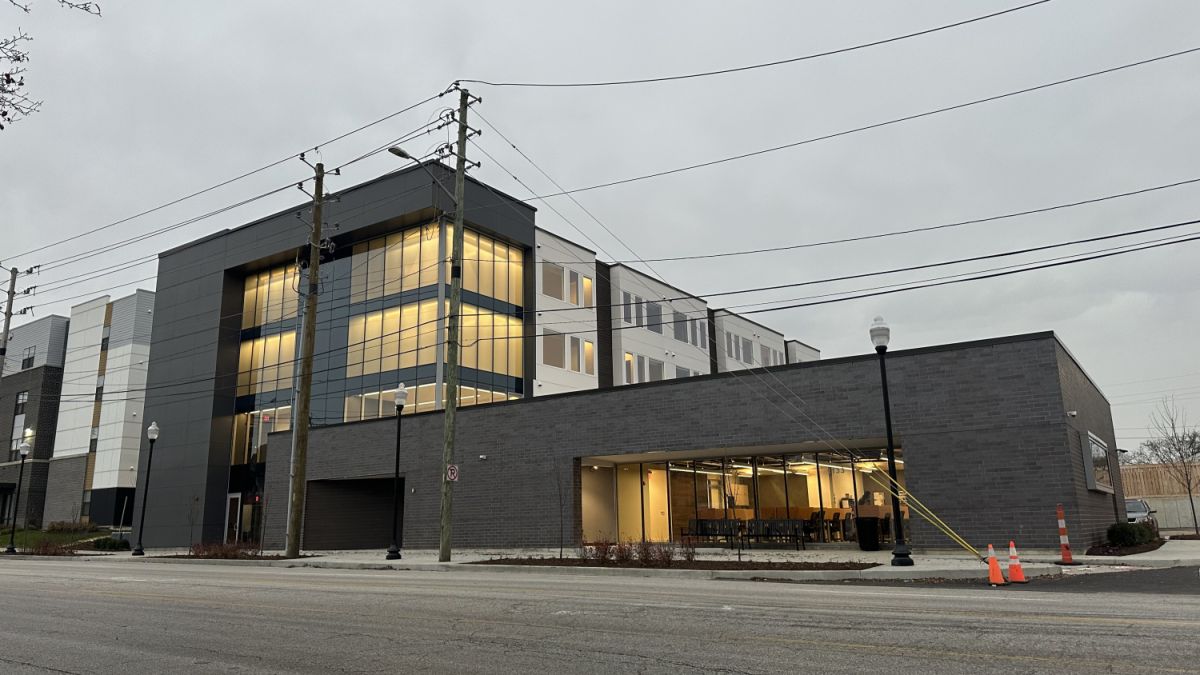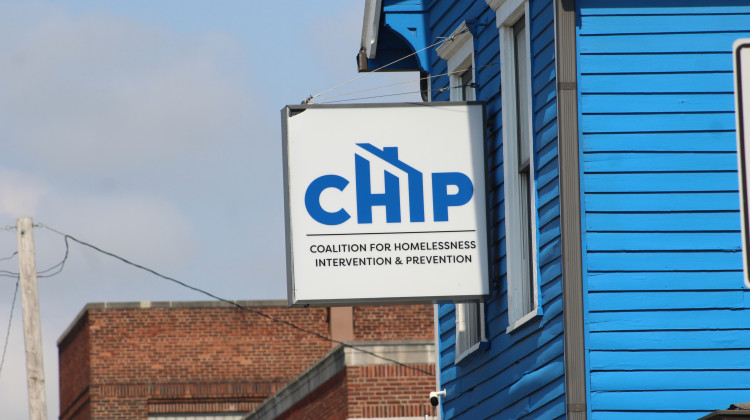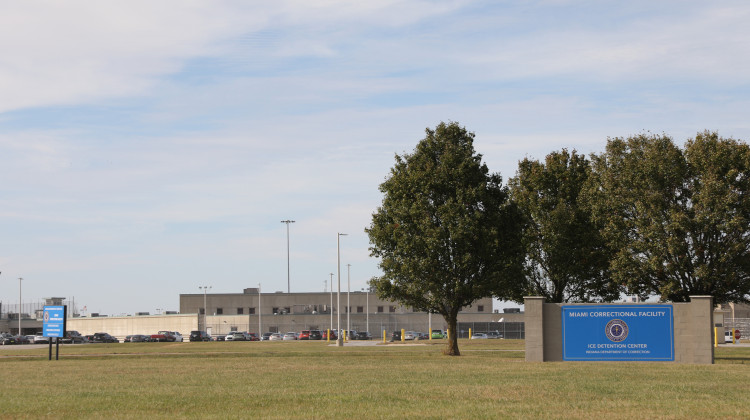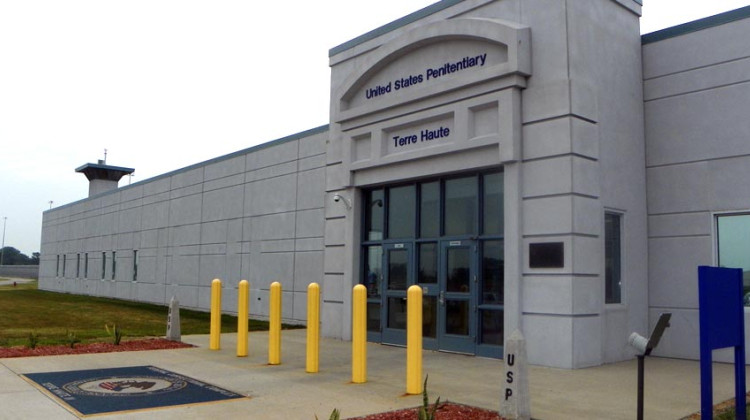Work to end homelessness in Indianapolis faces significant challenges with new priorities for federal funding. The city is at risk of losing about $10 million designated for long-term housing programs – including permanent supportive housing and rapid-rehousing efforts.
Indianapolis has hinged much of its plans to end homelessness on those permanent housing strategies, which have been shown to reduce chronic homelessness.
The U.S. Department of Housing and Urban Development notified state and local organizations recently that the majority of federal Continuum of Care funding for those strategies will now shift “to transitional housing and supportive services, ending the status quo that perpetuated homelessness through a self-sustaining slush fund.”
President Donald Trump signaled a change in CoC homeless response policy money earlier this year, and local organizations have been expecting a shift.
Chelsea Haring-Cozzi is the executive director of the Coalition for Homelessness Intervention and Prevention. CHIP coordinates CoC funding for the city. She said the notice makes major changes.
“The implications of that are, I mean, it is possible Indianapolis could lose a significant portion of our funding because it is much more at risk and much more highly competitive,” Haring-Cozi said.
Housing first centered programs include units at city supported projects and long-term funding for rent assistance. Those existing programs may take an even deeper hit with the new policy because recent funding requests were delayed, in part because of the government shutdown.

A majority of the $3.9 billion in competitive funding available to states and cities for those strategies will now be directed toward transitional housing and other services that aim to address root causes of homelessness including mental health and addiction issues.
Some have expressed concern that more people may need to engage in work requirements and mandatory addiction treatment in order to receive housing.
“There's a lot of evidence out there that forced treatment does not work,” Haring-Cozi said, “There's a lot of research that shows forced treatment, oftentimes, can increase overdoses and it's just not an evidence based approach.”
That’s one of the reasons Indianapolis and other municipalities moved away from solutions that mandated people meet requirements to receive housing. Currently a majority of CoC money across the country is spent on permanent housing efforts without those requirements.
Executive Director of the Greater Indianapolis Multifaith Alliance Rabbi Aaron Spiegel works with the city on homeless issues. He said providing housing first and then providing wrap-around services is proven to work.
“It's not a program, it's a philosophy. But that philosophy works to end homelessness and chronic homelessness, not to manage it, so the efficacy is not in question,” Spiegel said, “However, there are forces that don't believe that it works.”
The strategy in Indianapolis has shown some success, and in 2024 CHIP won historic levels of CoC funding – more than $12 million. The award came in part because data showed Indianapolis had slightly reduced the number of unhoused individuals.
But since the pandemic, many cities saw an overall spike in the number of people who are homeless. That number rose across the country – up 18 percent in 2024.
The increase is one of the arguments the federal government is making to move away from long-term funding for permanent housing. Experts point to a number of influencing factors, including lack of affordable housing and rising rents.
HUD’s funding change announcement tied housing first efforts to the Biden administration as a favored tactic that received noncompetitive funding.
“The Biden administration only completed about 10% of projects over four years. During that same time period, transitional housing, which has been proven to encourage self-sufficiency, never received more than 2% of CoC funding,” the statement read.
Pastor David Greene is a senior pastor at Purpose of Life Ministries and president of the Concerned Clergy of Indianapolis. He said a new program that uses permanent housing in Indy, Streets to Home, is currently funded through a mix of city and philanthropic dollars, not federal funds.
“And if we're going, to those of us that believe in housing first, we're going to continue,” Greene said, “we're going to need local philanthropic support, the backfill, the services and what a lot of these high performing programs have been doing.”
But Pastor Greene said he's worried Indianapolis doesn’t have a good track record of being proactive when it comes to efforts to end homelessness.
“Now I'm hoping this time it will be different,” Greene said, “My concern would be if a few people make the decision in a silo, and then we end up with a crisis on the back end.”
The city said it remains committed to long-term housing solutions. Andrew Merkley is the director of the Office of Public Health and Safety for Indianapolis and concedes it will take a village.
“We're going to continue that work, and it's what's also demonstrated is a public, philanthropic, private, corporate partnership that I hope we can continue to grow, and we'll be able to provide housing through those other means,” Merkley said.
Indianapolis adopted its initial plan to end homelessness in 2018. The plan did not meet its goal by 2023. It has been revised to now include the Streets to Home program with a goal to end chronic homelessness by 2028.
Contact WFYI managing city editor Jill Sheridan at jsheridan@wfyi.org
 DONATE
DONATE







 Support WFYI. We can't do it without you.
Support WFYI. We can't do it without you.